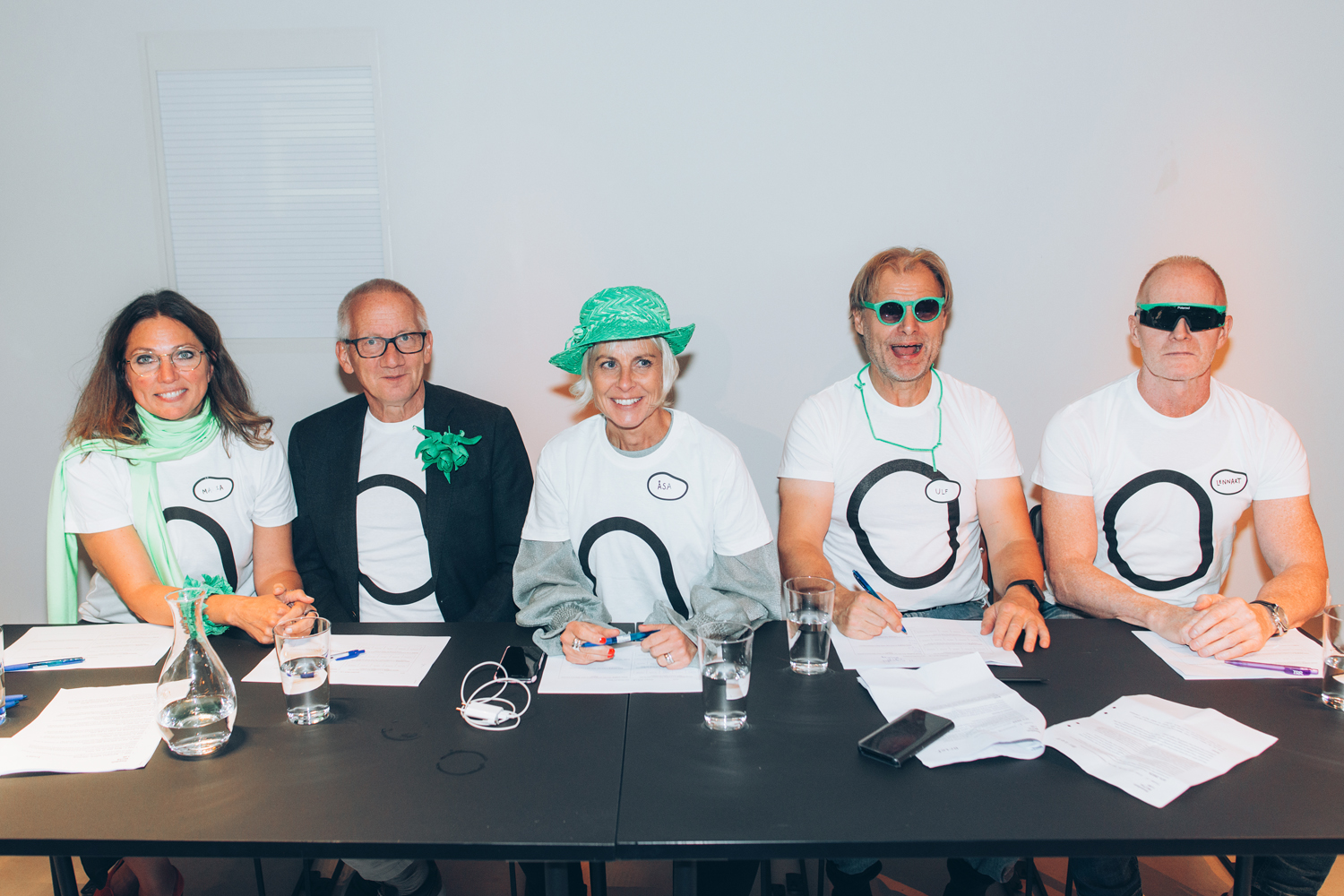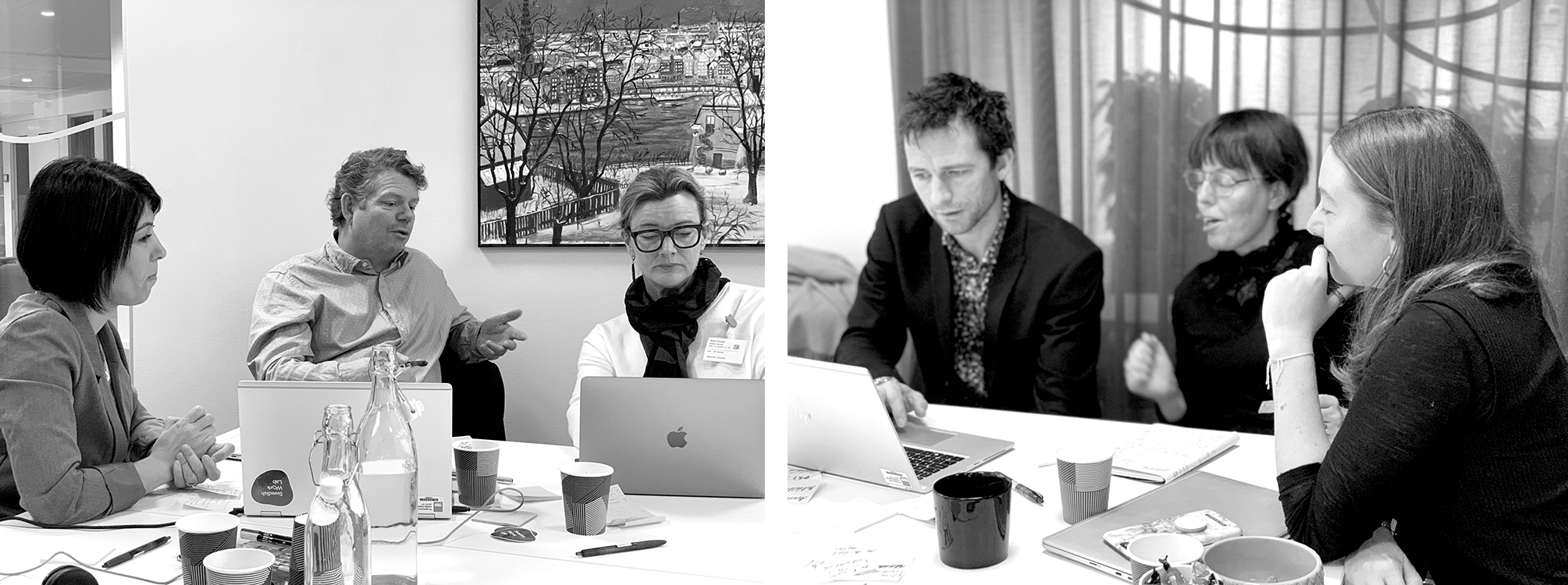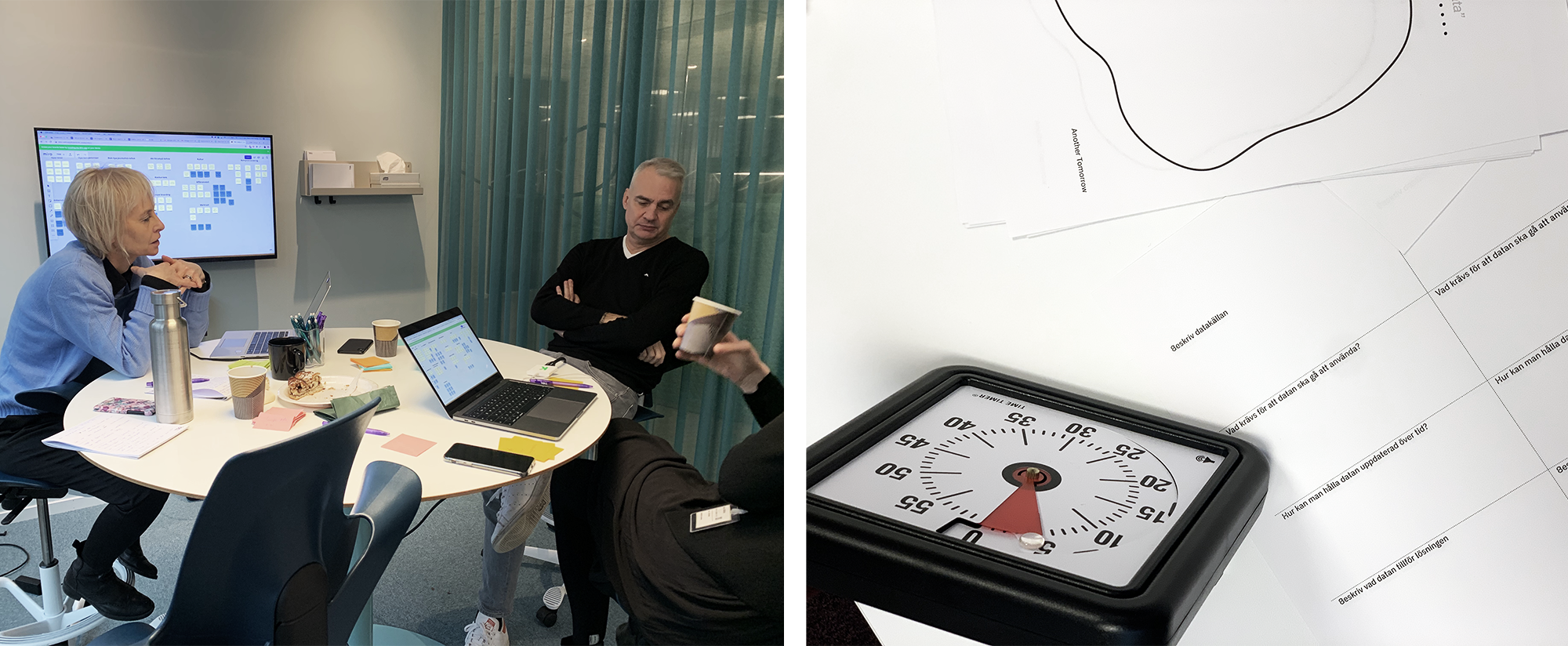Since the Swedish Work Lab hackathon in early September, TRR Trygghetsrådet and Another Tomorrow have been working on the three winning ideas, how to proceed with them, what possibilities there might be and most importantly, we have realised how relevant and needed the first pilot is for our collective future work lives. Here comes a summary of what we’ve been up to the past months.

What happened after the hackathon?
In the beginning of November, TRR and Another Tomorrow kicked off the pilot process with a “pilot task-force” diving deeper into the three winning ideas during a first workshop. We explored in more detail what they entailed, how close they were to TRR’s core business and focused on what they actually tried to solve. We then put this in relation to the organisation’s future vision and a potential market gap that needed to be filled.
We quickly found good synergies between the three ideas but decided to proceed with Future Five (or Future Index) as a first step, having the option to add bits and pieces of the other ideas further down the line. The focus would be on maintaining competence and the demand of specific skills in the future to help workers become more proactive in order to avoid unwanted gaps in their careers.

Hypothesis
If companies became better at identifying their own skill gaps and plan their needs for the next two to five years, workers would have the possibility to be more agile in their career and competence planning. If we are able to identify future development paths of companies we can suggest what skills employees should have and how to add them in order to avoid gaps in their employment. Our hypothesis is that a tool for future-proofing your career and taking proactive steps for both workers and companies is the missing piece of the puzzle.
Next steps and focus area
After the workshop, the core team got together and made a few decisions in order to create a clearer scope for the exploration, such as initially focusing on companies (as opposed to employees). This would be a good first step to generate and understand the data we needed to then create value for both parties. We also decided on piloting within a specific industry in order to focus on certain roles and shifts as well as not having to map out everything at once.
Based on some research, trends and TRR’s experience, we decided on taking a closer look at the media industry. Not only has it been struggling due to new (social) media platforms but the role of the journalist has changed over years. We conducted structured interviews with people who’ve been working in media for several years, especially within HR, recruiting or being the key stakeholders.
Insights
- Proactivity is not very common amongst employees, they’d rather “hang on” to their current employment as long as possible instead of actively looking for new jobs or add skills they’re lacking
- We found that companies can be divided into being “more reactive” or “more proactive” in competence planning
- More reactive companies tend to have less HR representation in their management, see education more as the employee’s responsibility, react ad-hoc to changes/when a vacancy emerges, and they trust that their brand still attracts new employees rather than putting effort into renewing their recruiting strategy
- More proactive companies more often have HR representation in their management teams, help employees continuously educate themselves further (in form of financial support, e-learning, etc.), invest in current employees, plan ahead and recruit for future needs

“The ones we are looking for already have jobs, good jobs. We can’t just put out job offers and hope they’ll come to us; we need to establish relations with these people in different contexts. We have to work proactively with searching” - on how to find the competence you’re lacking
One interesting difference we saw between the two behaviours was that the more proactive companies were not only recruiting based on hard skills. Culture enabling skills, a subcategory of soft skills, are required in order to contribute to the company culture it needs to stay competitive on the market.
“The right attitude towards change and the ability to function during change processes is a big part of our requirements in every recruitment. If change makes you unhappy, you can’t be here” - on crucial factors in recruitment
So, what exactly are culture enabling skills?
Entrepreneurial spirit, thriving under change, being open to taking on different roles within the company, experimenting on your own within new areas and taking a holistic responsibility for different tasks are just a few examples. Workers need to understand what skills will be required in the next years and make sure they have the opportunity to adapt to these so they aren’t forced into an unwished gap in their employment.
Workshop No. 2
As a next step, our bigger “pilot task-force” was asked to explore where these culture enabling skills could be found and analyse how to use them in order to create a clear and objective nomenclature. We looked at various academic research, future trend forecasts and existing job portals that helped us get a deeper understanding of what we actually were about to pilot and why this was needed.
With all this information collected and analysed, we have a good base for the first version of our pilot. We will update you more on that after the holidays and wish everyone a merry Christmas and a happy new year. May the blobs be with you!
